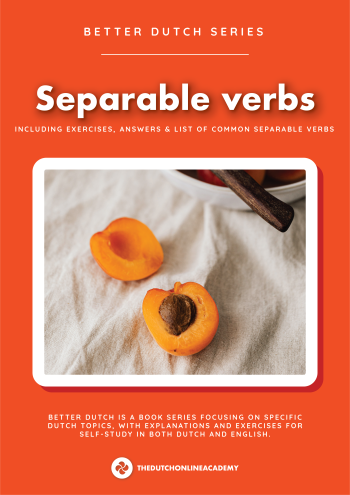Learn the theory
Jaar or jaren in Dutch?
The correct way to say it is 2 jaar. Now why are we not using the plural form? Well, with some indications of measure, weight and time, such as meter, kilo, jaar, gram, liter, uur and kwartier, are usually used in singular form after numbers.
So, let's look at a few examples:
- Ik woon al jaren in Nederland.
- Ik woon al 2 jaar in Nederland.
- Ik ben kilo's aangekomen tijdens de kerstvakantie.
- Ik ben 3 kilo aangekomen tijdens de kerstvakantie.
- Hij heeft deze week liters cola gedronken.
- Hij heeft deze week 5 liter cola gedronken.
- Ze hebben uren in de trein gezeten.
- Ze hebben 8 uur in de trein gezeten.
Exceptions: when to write the plural form after using a number
1) When an adjective is used after the number
When you use an adjective after the number, you'll have to write the plural form.
- Ik woon al 2 hele jaren in Nederland
- Ze hebben 8 saaie uren in de trein gezeten.
2) When you want to emphasise length of time or measure
This often sounds a bit poetic or dramatic.
- Hij heeft acht jaren naar een antwoord gezocht.
Remember: not all words that indicate measure, time and weight behave like this
The most common ones to write in singular form in combination with a number are meter, kilo, jaar, gram, liter, uur and kwartier. This means that words like minuten and maanden are written like this:
- Ik heb 10 minuten gewacht. (not: 10 minuut)
- Ik ben 3 weken in Frankrijk geweest. (not: 3 week)
- Ze is 8 maanden zwanger. (not: 8 maand)
- Een minuut heeft 60 seconden (not: 60 seconde)
Practice with exercises
Do you have to use the plural form or not? Pay attention to words of quantity!
comments
Login to leave a comment


![Learn Dutch with The double infinitive in Dutch [list of auxiliary verbs included]](https://images.ctfassets.net/f8l4gy5qxe00/7fpaN2iBE3h1xS7LRL8c0h/3bbebedc080cbf7eece73424c8e3918f/The_double_infinitive.png?w=350&h=495&q=50&fm=png)
